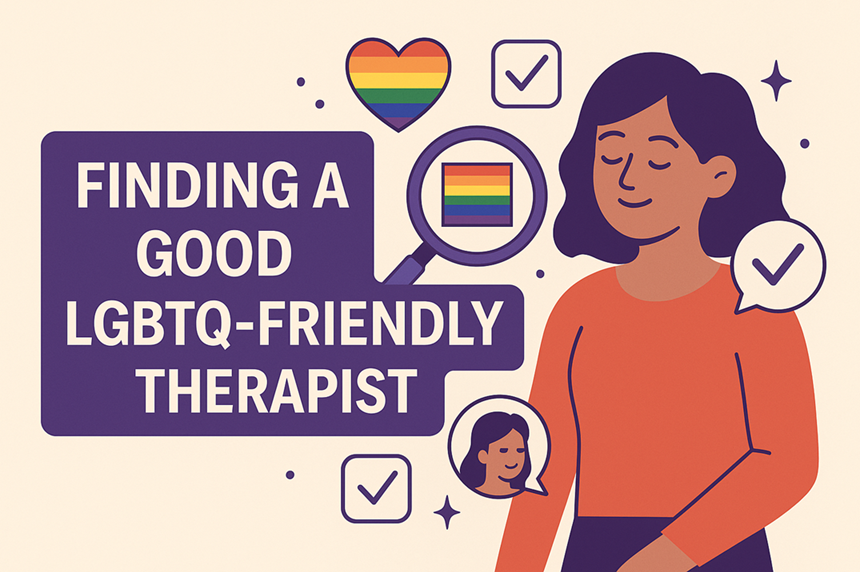
Finding a therapist you can truly trust is an important step toward healing and growth. For members of the LGBTQ+ community, that trust must include a sense of safety, understanding, and respect for one’s identity.
An LGBTQ-affirming therapist not only supports your mental health but also ensures that your identity is celebrated not questioned or minimized.
If you’re searching for an LGBTQ Friendly therapist in Chicago or looking for affirming therapy online in Illinois, here’s what to look for and how to find the right fit.
When browsing therapist profiles or websites, language matters. A truly queer-friendly counselor uses inclusive terms and communicates awareness of diverse gender identities and sexual orientations.
Look for signs such as:
While a therapist does not have to identify as LGBTQ+ to provide excellent care, they should demonstrate genuine understanding, respect, and experience working with LGBTQ+ clients.
Also Read: Common Issues Addressed in LGBTQ Therapy
Every therapist has a unique approach to counseling. For LGBTQ+ individuals, this should include cultural competence and sensitivity to minority stress, identity development, and the challenges of coming out or facing discrimination.
Ask potential therapists:
These questions can help you gauge whether their values align with yours.
Not all therapists who label themselves “LGBTQ-friendly” are truly affirming. Some may unintentionally cause harm through outdated language or lack of awareness.
Be cautious of therapists who:
A qualified, affirming therapist will create space for all aspects of your life—your identity, relationships, work, and emotional health without reducing you to a label.
Finding a therapist doesn’t have to feel overwhelming. Many organizations and directories make the process easier:
If you’re in a smaller or rural area, online therapy can be a lifeline. Many LGBTQ+ individuals in Illinois choose teletherapy to access specialized, affirming care without the limitations of location.
Also Read: How to Prevent Negative Thoughts
Most therapists offer an initial consultation sometimes free or low-cost. This meeting is your opportunity to ask questions, understand their approach, and see how you feel in their presence.
During your first interaction, notice:
The therapeutic relationship is built on trust. You deserve to feel completely supported and understood.
A good therapist doesn’t tell you who you are they help you explore it safely. In LGBTQ-affirming therapy, collaboration and respect are key.
Your therapist should check in with you regularly, invite feedback, and adapt their methods to your comfort level and goals.
If at any point you feel invalidated or uncomfortable, it’s okay to discuss it or switch therapists. Finding the right match is part of the healing journey.
It can take time to find the right fit, especially if you’ve faced past rejection or discrimination. But affirming therapists are out there and they can make all the difference in your mental health journey.
Many LGBTQ+ individuals report feeling relief and empowerment once they find a therapist who truly “gets it.” The goal of therapy is to help you live authentically, manage stress, and build resilience not to change who you are.
At PS IT’S Counseling in Chicago, Illinois, we believe that therapy should be an inclusive, compassionate space for everyone.
Our licensed clinicians offer both in-person sessions in Chicago and secure online therapy throughout Illinois, providing affirming support for LGBTQ+ individuals, couples, and families.
Whether you’re navigating identity questions, relationship challenges, trauma, or anxiety, our team is here to help you feel seen, supported, and safe.
If you’re ready to begin your journey with an LGBTQ-affirming therapist, contact PS IT’S Counseling today to schedule your first session.
Embark on a transformative path to optimal well-being with our uplifting counseling services. Let our expert guidance elevate you to new heights of wellness. Take the first step today and enjoy a complimentary 15-minute consultation to explore the positive changes awaiting you.